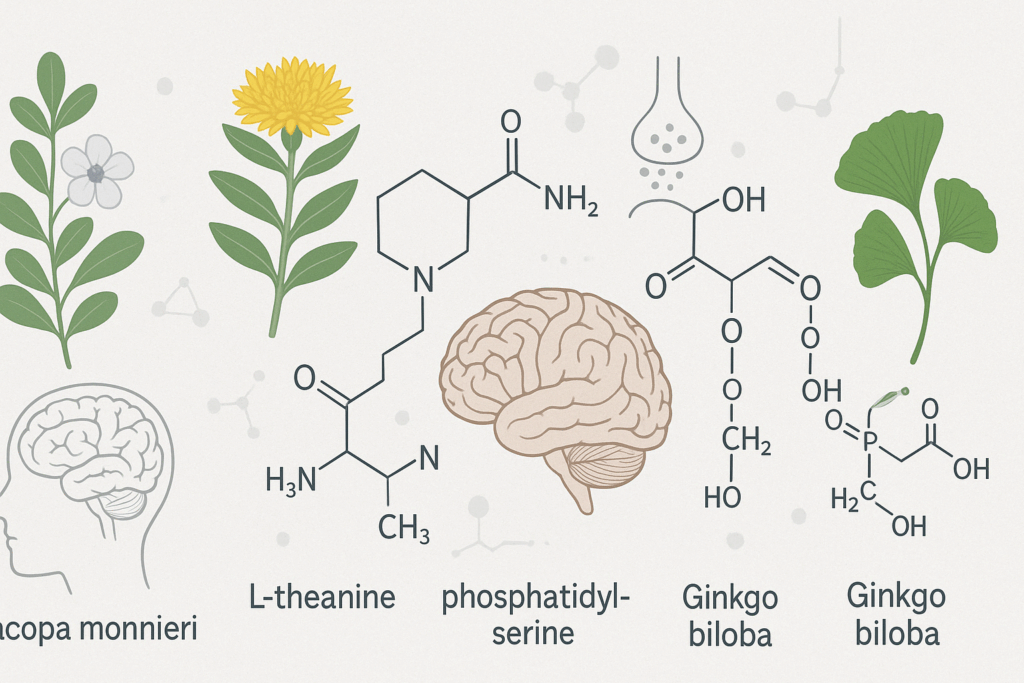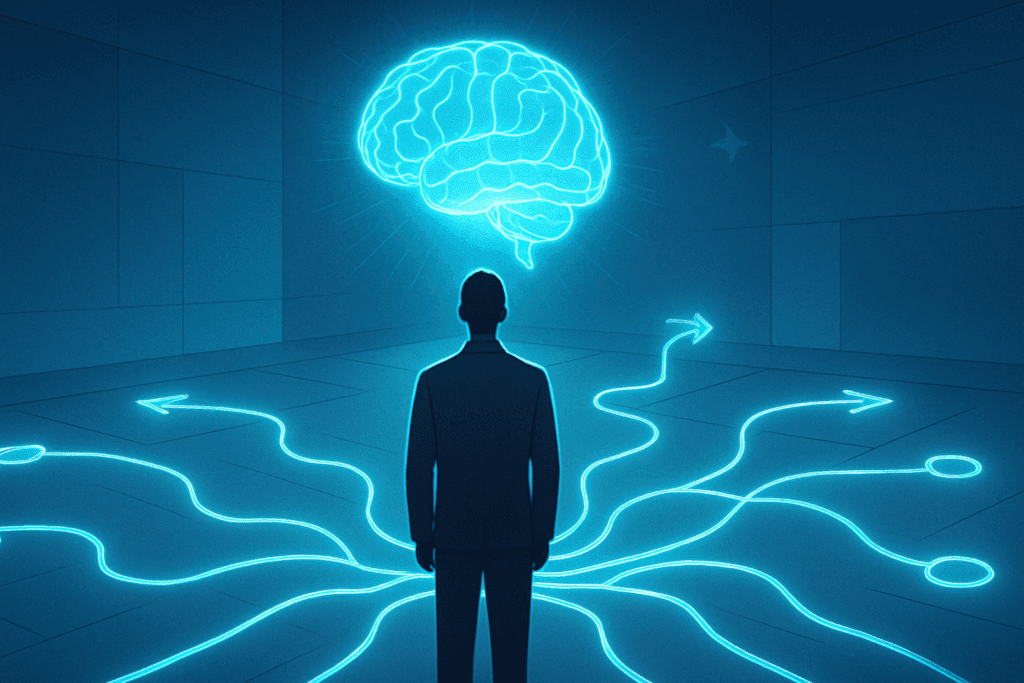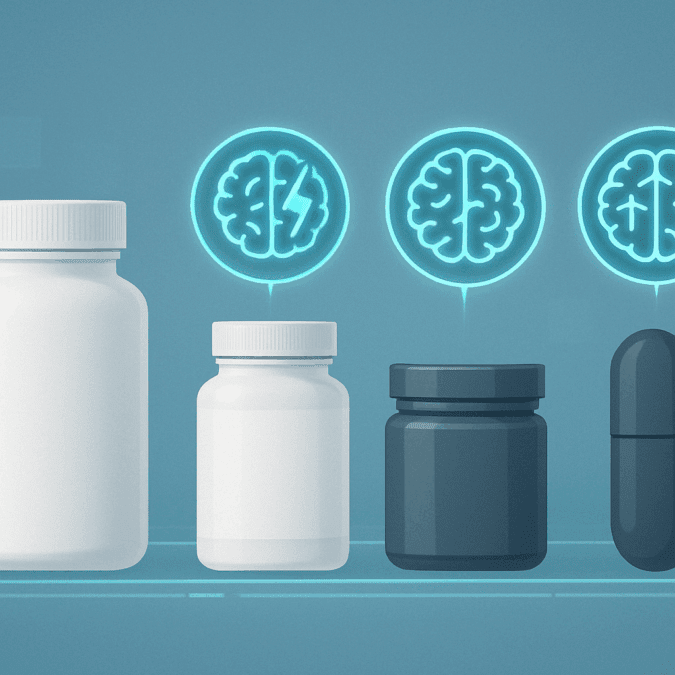Exploring the Promise of Brain Guard for Mental Clarity and Cognitive Health
In the expanding world of nootropics, the quest for sharper focus, enhanced memory, and improved decision-making has inspired consumers and researchers alike to explore supplements that can truly make a difference. Among the growing list of cognitive enhancers, one product in particular has begun to stand out: Brain Guard. Promoted as a comprehensive brain supplement designed to support focus, memory, and overall mental clarity, Brain Guard is drawing increased attention from students, professionals, and health-conscious individuals seeking a mental edge.
You may also like: How to Choose the Best Brain Supplements for Adults: Science-Backed Ingredients That Support Focus, Memory, and Mental Clarity
But as is the case with any supplement making bold cognitive claims, questions naturally arise. Are the ingredients in Brain Guard backed by real science? Do Brain Guard reviews reflect legitimate results? And how does this supplement compare to others on the market in terms of supporting brain health and better decision-making? In this article, we take a deep dive into the formulation of Brain Guard, assess the science behind its key ingredients, and examine both consumer feedback and expert commentary to determine whether this nootropic lives up to the hype.
Understanding the Rising Demand for Cognitive Enhancement
In today’s high-performance culture, mental clarity is increasingly viewed as a crucial asset. Whether navigating complex decisions in a fast-paced workplace or managing the cognitive load of academic life, many people are searching for ways to boost brain function without relying on pharmaceutical stimulants. The concept of using natural or semi-synthetic nootropics—often referred to as “smart drugs”—has gone from fringe to mainstream in recent years. Products like Brain Guard capitalize on this trend, promising cognitive support without the crash, dependency, or side effects often associated with prescription medications.
The popularity of brain-boosting supplements has been bolstered by the growing body of research on ingredients like Bacopa monnieri, phosphatidylserine, Rhodiola rosea, and L-theanine—all of which appear in various forms in the Brain Guard formula. Yet, it’s not just the ingredients themselves that matter; it’s how they interact, their concentrations, and the quality of the sourcing that ultimately determine a product’s efficacy. That’s why reading Brain Guard reviews alone isn’t sufficient—understanding the scientific foundation is essential.

What Is Brain Guard and What Does It Claim to Do?
Brain Guard is marketed as a daily-use nootropic designed to enhance various aspects of cognitive performance. Its formulation is said to support mental energy, concentration, information retention, and the ability to make more thoughtful decisions under pressure. On the surface, this positions Brain Guard as both a cognitive enhancer and a mental stamina aid—appealing to users across a wide spectrum of needs.
The supplement claims to work through a multi-targeted mechanism, addressing neurotransmitter balance, blood flow to the brain, neuroprotection, and stress modulation. These claims mirror the language used in scientific discussions about cognitive resilience and executive function. However, the real test is how well these promises are fulfilled through evidence-based formulation. While many Brain Guard reviews highlight improvements in productivity and mental clarity, an objective analysis of its active ingredients and their dosages is essential to determine its true potential.
Key Ingredients in Brain Guard: A Scientific Perspective
A closer examination of Brain Guard’s ingredient list reveals a blend of familiar nootropic compounds and adaptogens. Each component has its own set of clinical research, but the synergistic potential when used together is where the product aims to shine. Here’s a look at some of the most important ingredients in the Brain Guard formula:
1. Bacopa Monnieri
Known for its traditional use in Ayurvedic medicine, Bacopa is often celebrated for its cognitive-enhancing properties. Research has shown that long-term supplementation with Bacopa can improve memory consolidation, processing speed, and overall cognitive performance, particularly in older adults. In Brain Guard, its inclusion seems well-founded, though its effectiveness depends on whether it is standardized for bacosides—the active compounds linked to its benefits.
2. Rhodiola Rosea
As an adaptogen, Rhodiola is valued for its ability to help the brain and body resist stress. It is frequently included in nootropic stacks to support mental endurance, particularly during periods of fatigue or high cognitive demand. Studies have indicated that Rhodiola can reduce mental fatigue and improve mood, which could explain the positive tone in many Brain Guard reviews related to mood stability and sustained focus.
3. L-Theanine
This amino acid, commonly found in green tea, is well-known for promoting calm alertness. When paired with caffeine, L-theanine may balance overstimulation, allowing for focused attention without jitteriness. In the Brain Guard formula, its standalone presence may contribute to reduced anxiety and improved decision-making under pressure, which are key aspects of cognitive flexibility.
4. Phosphatidylserine
A phospholipid critical to cellular function in the brain, phosphatidylserine has been shown in clinical studies to support memory and slow cognitive decline, especially in older adults. Its inclusion in Brain Guard strengthens its appeal to individuals seeking long-term brain health support in addition to immediate focus benefits.
5. Ginkgo Biloba
Ginkgo is often touted for its potential to enhance blood flow to the brain, possibly leading to better oxygenation and nutrient delivery. This mechanism is theorized to support attention span and reaction time. Some Brain Guard reviews specifically mention improved mental clarity and sharper recall, which may correlate with this ingredient’s vascular benefits.

What Do Brain Guard Reviews Say About Real-World Use?
The experiential component of any supplement cannot be dismissed. While clinical data offers objective evidence, consumer feedback often highlights how a product performs in the variability of everyday life. Brain Guard reviews across multiple platforms—from Reddit to health supplement forums—paint a picture of moderate to strong user satisfaction, particularly for those using it consistently over several weeks.
Many users report feeling more focused and energized within the first few days, though the most notable improvements in memory and decision-making tend to manifest after three to four weeks of regular use. This aligns with the natural pharmacokinetics of ingredients like Bacopa, which require longer periods to accumulate therapeutic levels. Others highlight benefits such as smoother multitasking, reduced mental fatigue during long workdays, and a sense of calm under cognitive stress—hallmarks of a supplement that supports both focus and resilience.
However, not all Brain Guard reviews are universally positive. Some users note that the effects are subtle or even negligible without adequate sleep, hydration, or baseline mental health. This speaks to an important point often overlooked in the nootropic conversation: these supplements are not magic bullets. Instead, they are most effective when used as part of a broader lifestyle strategy that includes proper nutrition, physical activity, and rest.
How Brain Guard Supports Better Decision-Making Under Pressure
One of the more compelling aspects of Brain Guard’s positioning is its emphasis on decision-making optimization. While many nootropics focus narrowly on attention span or working memory, Brain Guard attempts to address the broader spectrum of executive function—particularly how we weigh options, manage risk, and maintain cognitive control under pressure.
The ingredients in Brain Guard are associated with mechanisms that can modulate stress hormones like cortisol, enhance prefrontal cortex activation, and improve the efficiency of neurotransmitter pathways such as dopamine and acetylcholine. These are the very systems that govern decision-making processes. For example, phosphatidylserine has been shown to blunt the cortisol response to acute stress, helping individuals think more clearly in challenging scenarios. Similarly, Rhodiola’s stress-buffering properties may support situational awareness and reaction time.
This aligns with anecdotal evidence from Brain Guard reviews, where users frequently describe improved composure during important meetings, exams, or negotiations. These outcomes suggest a genuine advantage for users who operate in high-stakes environments and need more than just short-term energy spikes—they require sustained clarity and sound judgment.

Comparing Brain Guard to Other Nootropic Supplements
With an ever-expanding array of brain supplements on the market, it’s worth evaluating how Brain Guard stacks up against competitors in the nootropics space. One distinguishing factor is its ingredient transparency. Unlike proprietary blends that obscure exact dosages, Brain Guard clearly discloses the amounts of each component, allowing for informed comparisons with clinical research standards.
Another point in its favor is the combination of both fast-acting and long-term ingredients. While some supplements focus solely on immediate stimulatory effects, Brain Guard takes a more holistic approach—offering both adaptogenic and neuroprotective benefits. This positions it well for users seeking sustainable cognitive performance rather than quick fixes. Additionally, the positive trend in Brain Guard reviews suggests a higher satisfaction rate compared to stimulant-heavy products that may cause tolerance or dependence over time.
That said, no supplement is universally ideal. Individuals seeking highly targeted benefits—such as intense energy or advanced neurogenesis—may find more specialized formulas better suited to their goals. Still, for general cognitive enhancement and decision-making support, Brain Guard offers a well-rounded option grounded in both scientific rationale and user-reported efficacy.
Are There Any Side Effects or Safety Concerns?
As with any supplement, safety should be a primary consideration—especially when targeting the brain. Fortunately, Brain Guard’s ingredient profile is generally well-tolerated among healthy adults. Clinical studies involving Bacopa, Rhodiola, and L-theanine report low incidence of side effects when taken at standard doses. Mild side effects such as gastrointestinal discomfort or mild headaches have been noted in some individuals, but these symptoms are typically transient.
It’s also worth noting that Brain Guard does not contain high doses of caffeine or synthetic stimulants, which reduces the risk of jitteriness, dependency, or crashes. This makes it suitable for individuals with caffeine sensitivity or those trying to reduce their intake of stimulating substances.
Still, as many Brain Guard reviews suggest, the importance of consulting a healthcare professional before beginning any cognitive supplement cannot be overstated—especially for individuals with pre-existing conditions, psychiatric disorders, or those taking medications that could interact with herbal compounds.

How to Maximize the Benefits of Brain Guard
For those considering Brain Guard as part of their daily cognitive regimen, maximizing its potential requires more than just taking the capsules as directed. Research and real-world evidence both suggest that nootropic supplements work best when used in synergy with foundational health practices. Consistent sleep, a diet rich in omega-3 fatty acids and antioxidants, regular physical activity, and mindfulness-based stress management are all practices that complement the cognitive effects of Brain Guard.
Additionally, users may benefit from tracking their cognitive performance over time to assess the supplement’s impact. Journaling concentration levels, task completion rates, or even using digital cognitive testing tools can help users determine whether Brain Guard is delivering measurable benefits. Many of the most insightful Brain Guard reviews come from users who monitored changes in their productivity or emotional resilience over a matter of weeks—not just hours.
It’s also helpful to cycle the supplement, giving the body periodic breaks to reset neurotransmitter sensitivity. This approach can help prevent diminishing returns and keep the cognitive benefits of Brain Guard both consistent and sustainable.
FAQ: Advanced Insights Into Brain Guard Supplementation and Cognitive Health
1. How does Brain Guard compare to personalized nootropic stacks for cognitive enhancement?
While many brain supplements follow a one-size-fits-all formula, Brain Guard takes a more streamlined, targeted approach by focusing on universally beneficial ingredients like Bacopa monnieri and phosphatidylserine. However, personalized nootropic stacks—customized based on genetic, cognitive, or lifestyle assessments—can offer precision-targeted support for unique neurochemical profiles. If you’ve already tried Brain Guard and are looking for a more refined cognitive edge, working with a neuro-health professional to develop a stack may yield more potent results. Still, Brain Guard remains a popular choice in reviews for those seeking a reliable, pre-formulated solution with evidence-based ingredients. Brain Guard reviews often highlight its balanced composition as a strong entry point before exploring more tailored nootropic strategies.
2. Can Brain Guard be cycled to avoid tolerance, and what’s the best way to do it?
Yes, cycling Brain Guard may help reduce the risk of ingredient tolerance—particularly if you’re using it for long-term focus and memory support. A common strategy is to follow a 5-days-on, 2-days-off schedule, or take a full week off every month. This helps maintain the supplement’s effectiveness while giving your brain a rest from continuous stimulation. While Brain Guard reviews rarely mention diminishing effects, neuroplasticity studies suggest that even natural nootropics can lose impact without strategic breaks. Pairing off-days with activities that boost brain health—like mindfulness training or light aerobic exercise—can enhance your overall cognitive outcomes.
3. What do Brain Guard reviews say about its use for decision-making under pressure?
Many Brain Guard reviews from professionals in high-stakes environments—such as finance, software engineering, and healthcare—note improved clarity and calmness when making split-second decisions. The inclusion of adaptogens like Rhodiola rosea may be a key factor here, as they help regulate cortisol levels during acute stress. Unlike high-stimulant nootropics that can cause jittery overthinking, Brain Guard seems to provide a steadier focus, which is crucial when cognitive overload threatens rational thinking. Users often report feeling more in control and less reactive, especially during meetings, presentations, or performance reviews. This aligns with emerging neuroscience suggesting that focus-enhancing adaptogens can sharpen executive functioning without the crash of synthetic stimulants.
4. Could Brain Guard have synergistic effects when combined with mindfulness or breathwork practices?
Absolutely. Brain Guard supports neurotransmitter balance and neuronal membrane health, which may enhance the benefits of practices like meditation and breathwork. For example, ingredients such as L-theanine promote alpha brain wave activity—a pattern also linked with deep meditative states. Several Brain Guard reviews describe a noticeable sense of mental clarity when combining the supplement with daily mindfulness rituals. This synergy can potentially deepen focus, reduce mental chatter, and increase resilience to distractions, particularly for individuals with ADHD traits or executive function challenges. Over time, this combination may even contribute to greater emotional regulation and introspective depth.

5. Are there any gender-specific cognitive benefits or considerations when using Brain Guard?
Brain Guard is generally formulated for broad-spectrum cognitive support, but hormonal differences can influence how men and women respond to its ingredients. For instance, some women report improved memory retention during the luteal phase of their cycle when taking phosphatidylserine, one of Brain Guard’s core components. Additionally, adaptogenic herbs like Rhodiola can be particularly beneficial in mitigating stress-induced cognitive fatigue, which is more commonly reported by women due to fluctuating estrogen levels. Brain Guard reviews from female users often highlight enhanced productivity without overstimulation, which may appeal to those who are sensitive to caffeine-based formulas. Customizing the dosage or combining it with hormone-supportive nutrition may further personalize its benefits.
6. How might long-term Brain Guard use influence age-related cognitive decline?
Emerging research suggests that ingredients found in Brain Guard may help preserve neuronal integrity over time. For example, long-term use of Bacopa monnieri has been associated with reduced beta-amyloid accumulation in preclinical studies—offering potential protection against cognitive decline. Brain Guard reviews from middle-aged and older users frequently cite sharper memory recall and sustained focus throughout the day, which may point to neuroprotective effects. While no supplement should be considered a replacement for lifestyle interventions like regular exercise or Mediterranean-style diets, Brain Guard may serve as an effective adjunct for individuals looking to support brain longevity. It’s important to monitor cognitive health through periodic assessments if you’re using nootropics long-term.
7. Can Brain Guard support cognitive flexibility and creative problem-solving?
Yes, several ingredients in Brain Guard—particularly L-tyrosine and phosphatidylserine—are linked to enhanced cognitive flexibility, the mental agility required for shifting perspectives and generating innovative solutions. This is especially beneficial for creatives, entrepreneurs, and professionals in problem-solving-intensive roles. According to some Brain Guard reviews, users report being able to brainstorm more freely and transition between tasks more smoothly, without the mental friction that often accompanies multitasking. This may be due to improved working memory and dopamine regulation, both of which are essential for divergent thinking. Adding creative activities like sketching, journaling, or mind-mapping while supplementing with Brain Guard may maximize these effects.
8. How do Brain Guard reviews reflect its use during burnout or cognitive fatigue recovery?
Interestingly, a growing number of Brain Guard reviews highlight its value during burnout recovery—not just for peak performance. Users describe feeling more mentally resilient after chronic overwork or emotional exhaustion, often noting improvements within 7 to 14 days of consistent use. The adaptogens and antioxidant compounds may play a key role in supporting mitochondrial function and restoring neurotransmitter balance. In these cases, Brain Guard appears to function less as a “performance enhancer” and more as a gentle cognitive rehabilitator. This shift in usage perspective makes it a candidate for inclusion in recovery protocols designed for knowledge workers, caregivers, or students experiencing cognitive wear-and-tear.
9. What are some overlooked lifestyle factors that can amplify Brain Guard’s effectiveness?
To get the most out of Brain Guard, consider optimizing your diet, sleep, and digital hygiene. Nutrient synergy matters—brain-healthy fats (like those in salmon or walnuts) can enhance the bioavailability of phospholipids like phosphatidylserine. Sleep quality is another game-changer: poor sleep undermines the nootropic effects of even the best supplements. Several Brain Guard reviews note diminished benefits during weeks of inadequate rest or screen overexposure before bed. Additionally, reducing “cognitive clutter”—such as excessive notifications or multitasking—can help the brain use the supplement’s effects more efficiently. Treat Brain Guard as a catalyst, not a crutch, and its impact will likely be more profound and sustained.
10. What trends in neuroscience or supplement innovation could influence the future formulation of Brain Guard?
We’re entering a fascinating era where AI-driven bioinformatics and wearable brain tech could revolutionize how cognitive supplements are personalized. Future iterations of Brain Guard might include micro-dosed nootropics tailored to EEG readings or real-time neurotransmitter tracking. There’s also increasing interest in gut-brain axis modulators—such as psychobiotics—that could be integrated to improve emotional regulation and cognitive resilience. Brain Guard reviews already suggest user satisfaction with its current formula, but consumer demand for smarter, more adaptive supplements is likely to shape its next evolution. As personalized brain health becomes more mainstream, Brain Guard could stand out by merging traditional herbal wisdom with cutting-edge neurotech.

Final Thoughts: Is Brain Guard Worth Considering for Cognitive Enhancement and Decision-Making?
After a comprehensive analysis of the available research, ingredient profile, and real-world feedback, Brain Guard emerges as a well-designed nootropic with legitimate cognitive benefits. Its thoughtful blend of scientifically supported compounds—ranging from adaptogens to memory enhancers—suggests a formula capable of supporting both immediate focus and long-term brain health.
While individual results will always vary, the majority of Brain Guard reviews indicate improvements in clarity, stamina, and decision-making—especially when the supplement is used consistently and as part of a healthy lifestyle. Importantly, the product avoids the pitfalls of overstimulation or dependency by steering clear of excessive caffeine and synthetic ingredients.
In a market saturated with exaggerated claims and underwhelming formulas, Brain Guard stands out as a balanced, transparent, and scientifically informed option for those seeking genuine cognitive enhancement. For students, professionals, or anyone navigating complex cognitive tasks in high-pressure environments, this supplement is certainly worth consideration—especially when paired with the brain-boosting habits that support optimal performance from within.
Was this article helpful? Don’t let it stop with you. Share it right now with someone who needs to see it—whether it’s a friend, a colleague, or your whole network. And if staying ahead on this topic matters to you, subscribe to this publication for the most up-to-date information. You’ll get the latest insights delivered straight to you—no searching, no missing out.
Further Reading:
Advanced support for memory, focus, and brain longevity.
A Public Health Issue: Dietary Supplements Promoted for Brain Health and Cognitive Performance


